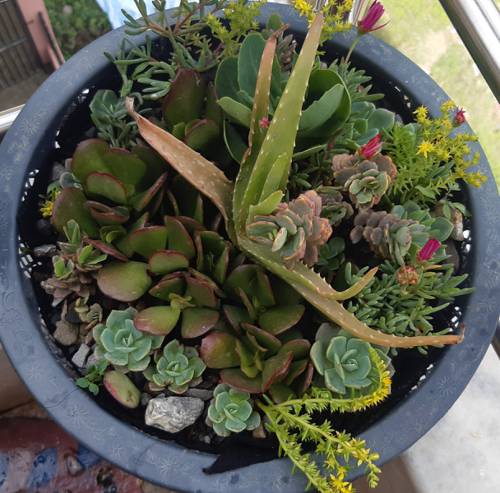
FAQ About Ethical Sourcing of Indoor Plants

What is ethical sourcing of indoor plants?
Ethical sourcing of indoor plants involves obtaining plants in a manner that is environmentally sustainable and socially responsible. It considers the impact on biodiversity, ensures fair treatment of workers in the supply chain, and respects local ecosystems and communities. This means choosing plants from suppliers who follow sustainable practices and avoiding those who exploit natural resources or people.

Why is ethical sourcing important for indoor plants?
Ethical sourcing is crucial because it helps preserve biodiversity and supports sustainable ecosystems. Indoor plants often come from regions with rich biodiversity, and irresponsible harvesting can lead to habitat destruction and species extinction. Ethical sourcing also ensures that the workers involved in plant cultivation and collection are treated fairly and paid adequately. By choosing ethically sourced plants, consumers contribute to positive environmental and social impacts.

How can I ensure the indoor plants I buy are ethically sourced?
To ensure that your indoor plants are ethically sourced, buy from reputable garden centers and nurseries that provide information about their sourcing practices. Look for certifications such as Fair Trade or Rainforest Alliance, which indicate adherence to ethical practices. You can also ask suppliers about their sourcing methods, the origins of their plants, and how they ensure sustainability and ethical treatment throughout their supply chain.

What impact does unethical plant sourcing have on biodiversity?
Unethical plant sourcing can have significant negative effects on biodiversity. It often involves overharvesting from wild populations, leading to habitat degradation and potential species extinction. This disrupts ecosystems, reduces genetic diversity, and can have cascading effects on local flora and fauna. By reducing natural populations, unethical sourcing can threaten the ecological balance and health of entire ecosystems.

Are there specific certifications that guarantee ethical sourcing of plants?
Yes, there are several certifications that can guarantee the ethical sourcing of plants. These include Fair Trade and Rainforest Alliance certifications, which ensure sustainable environmental practices and fair treatment of workers. Other certifications like FSC (Forest Stewardship Council) for wood products or specific organic certifications can also indicate adherence to ethical standards. Checking for these labels can help consumers make informed and responsible purchasing decisions.

How does ethical plant sourcing benefit local communities?
Ethical plant sourcing benefits local communities by ensuring fair wages and working conditions for people involved in the plant trade. It also supports the development of sustainable business practices that can lead to long-term economic stability. In addition, ethical sourcing often involves the investment in community facilities and educational programs, promoting social well-being and empowerment.

What are some common plants that are often sourced unethically?
Some common plants that are susceptible to being sourced unethically include succulents like cacti, orchids, and certain ferns. Rare and exotic varieties are particularly prone to overharvesting from the wild, as they are often in high demand and command higher prices. These practices can lead to unsustainable and potentially illegal collection methods, thus threatening the species and their natural habitats.

Can indoor plants contribute to conservation efforts?
Yes, indoor plants can indeed contribute to conservation efforts when they are sourced ethically. By purchasing sustainably collected and propagated plants, consumers can help reduce the pressure on wild populations. Furthermore, growing awareness and demand for ethically sourced plants can drive market changes that promote conservation-minded practices within the industry itself.

What role do nurseries play in ethical plant sourcing?
Nurseries play a crucial role in ethical plant sourcing as they are often primary suppliers of indoor plants. They can ensure sustainable practices by choosing to source from reputable growers who follow ethical guidelines. Nurseries can also offer transparency about their sourcing processes and educate consumers about the importance of supporting ethical plant farming. By fostering a culture of sustainability, nurseries help shape a market that values ethical production.

How can consumers influence the market towards ethical sourcing?
Consumers can influence the market towards ethical sourcing by prioritizing ethically certified products and demanding transparency from retailers about their sourcing practices. By choosing to buy only from businesses that uphold ethical standards, consumers create economic incentives for other companies to adhere to sustainable practices. Furthermore, spreading awareness about the importance of ethical sourcing and encouraging others to follow similar purchasing habits can help drive greater market change.

What changes can be made to traditional plant cultivation to enhance ethical sourcing?
To enhance ethical sourcing, traditional plant cultivation practices may need to incorporate sustainable techniques such as reducing the use of chemical fertilizers and pesticides, ensuring responsible water usage, and adopting permaculture principles. Switching to biodegradable pots and packaging, implementing recycling programs, and promoting the use of organic soils can also support ethical practices. These changes not only benefit the environment but also ensure healthier conditions for plant workers.

How does illegal poaching affect the plant trade?
Illegal poaching has a detrimental effect on the plant trade by depleting wild populations and destroying habitats. This not only leads to potential species extinction but also undermines legal and ethical businesses by introducing unfair competition and lowering market prices. Poaching often targets rare and endangered species, further complicating conservation efforts and threatening global biodiversity. Addressing poaching is essential for maintaining ecological integrity and supporting ethical trade.

What are some signs that a plant seller may not be sourcing ethically?
Some signs that a plant seller may not be sourcing ethically include a lack of transparency about the origins and sourcing practices of their plants. Additionally, be cautious if prices are unusually low for rare species, as this may indicate illegal or unethical sourcing. Sellers who cannot provide certification or assurance of sustainable practices, or those that refuse to answer questions about their supply chain, may also not follow ethical standards. It is always beneficial to conduct a little research or ask for more information.

How can I support conservation while buying indoor plants?
To support conservation while buying indoor plants, choose species that are sustainably grown and not threatened in the wild. Opt for plants from sellers that adhere to ethical sourcing practices and are transparent about their supply chains. Additionally, supporting local nurseries and growers who focus on sustainable methods helps reduce the ecological footprint of your purchase. You can also educate others about the importance of ethical sourcing to broaden the impact of your efforts.

What are some benefits of indoor plants being ethically sourced?
Ethically sourced indoor plants bring multiple benefits. They ensure the maintenance of biodiversity by reducing the pressure on wild plant populations. By supporting fair trade, they contribute to better socio-economic conditions for growers and workers. Ethical sourcing also promotes environmental sustainability, ensuring that plant cultivation practices do not harm natural ecosystems. Together, these benefits support a healthier planet and more equitable global plant trade.

What are some common challenges in enforcing ethical sourcing in the plant industry?
Enforcing ethical sourcing in the plant industry faces challenges such as insufficient regulatory frameworks, lack of transparency in supply chains, and increased demand for exotic and rare plants. Additionally, economic pressures can lead to unethical practices among growers and retailers. Coordination between governments, non-profit organizations, and industry players is crucial to overcome these challenges and promote sustainable and ethical sourcing practices.

How is technology being used to improve the ethical sourcing of plants?
Technology is playing an increasing role in improving the ethical sourcing of plants by providing tools for better tracking and monitoring supply chains. Satellite imagery and GPS technology can be used to ensure plants are harvested from legal areas, while blockchain technology is being explored to create transparent and immutable records of supply chains. These innovations help verify the origins of plants, ensuring compliance with environmental and ethical standards.

Are there any laws that support ethical sourcing of indoor plants?
Yes, several laws and regulations support the ethical sourcing of indoor plants, including the Convention on International Trade in Endangered Species of Wild Fauna and Flora (CITES), which regulates the international trade of endangered plants and animals. Additionally, many countries have their own laws governing sustainable forestry and agricultural practices. Compliance with these regulations helps protect biodiversity and promotes ethical sourcing in the plant trade.

How can gardening communities promote ethical sourcing?
Gardening communities can promote ethical sourcing by educating members about the importance of sustainable practices and encouraging the use of ethically sourced plants. They can organize events that highlight responsible gardening, create platforms for sharing knowledge and resources, and collaborate with nurseries to ensure access to ethically sourced plants. Community-driven initiatives can significantly influence local markets and promote a culture of sustainability.

What are exotic plants, and why are they often linked with unethical sourcing?
Exotic plants are species that are not native to a particular region and often attract collectors due to their rarity or unique characteristics. They are frequently linked with unethical sourcing because the demand for these plants can lead to overharvesting from wild populations and illegal trade. This can threaten their survival in their natural habitats and disrupt local ecosystems. Ensuring ethical sourcing of exotic plants is essential to maintain biodiversity and protect vulnerable species.
